In today’s fast-paced digital landscape, marketers are constantly challenged to prove the effectiveness of their campaigns. With numerous channels competing for attention, understanding which marketing efforts lead to conversions is crucial. Enter marketing attribution software—a game changer that enables businesses to measure the impact of their marketing strategies across various platforms. By assigning credit to different touchpoints in the customer journey, these tools help marketers make informed decisions that can significantly enhance their campaigns.
Research shows that businesses utilizing marketing attribution see an impressive average ROI increase of 20-40% (source: HubSpot, 2023). This surge in effectiveness is driving marketers to adopt data-driven strategies, aiming to maximize every dollar spent on advertising. In an era where consumers interact with brands through multiple channels before making a purchase, having precise attribution capabilities is not just beneficial; it’s essential.
Selecting the right marketing attribution software can feel overwhelming given the multitude of options available. However, understanding your specific needs—whether it’s tracking multi-channel engagement, optimizing ad spend, or gaining deeper insights into customer behavior—can simplify the decision process. Let's dive into the top marketing attribution software companies that can help you transform your marketing strategy.
The complexity of tracking marketing efforts has only grown in recent years. With the rise of digital channels—from social media to email and beyond—measuring ROI across these varied platforms has become increasingly challenging. Understanding the need for a solid attribution solution is the first step in optimizing your marketing efforts.
Attribution software plays a vital role in effective budget allocation. By accurately identifying which channels perform best, businesses can reallocate their budgets towards higher-performing avenues. For instance, a mid-sized company was able to increase revenue by 50% after shifting their budget based on insights gained from an attribution tool. This example underscores the importance of effective spending in driving higher returns on marketing investments.
In this article, we’ve compiled a list of the top marketing attribution software companies based on several criteria, including features, user experience, and customer support. One standout feature of Cometly, for instance, is its AI-driven recommendations that optimize campaigns in real time. Get ready to explore tools that can significantly enhance your marketing strategies.
Best for: Businesses looking for precise measurement across various marketing channels.
Cometly is a comprehensive platform for marketing attribution with real-time optimization capabilities.
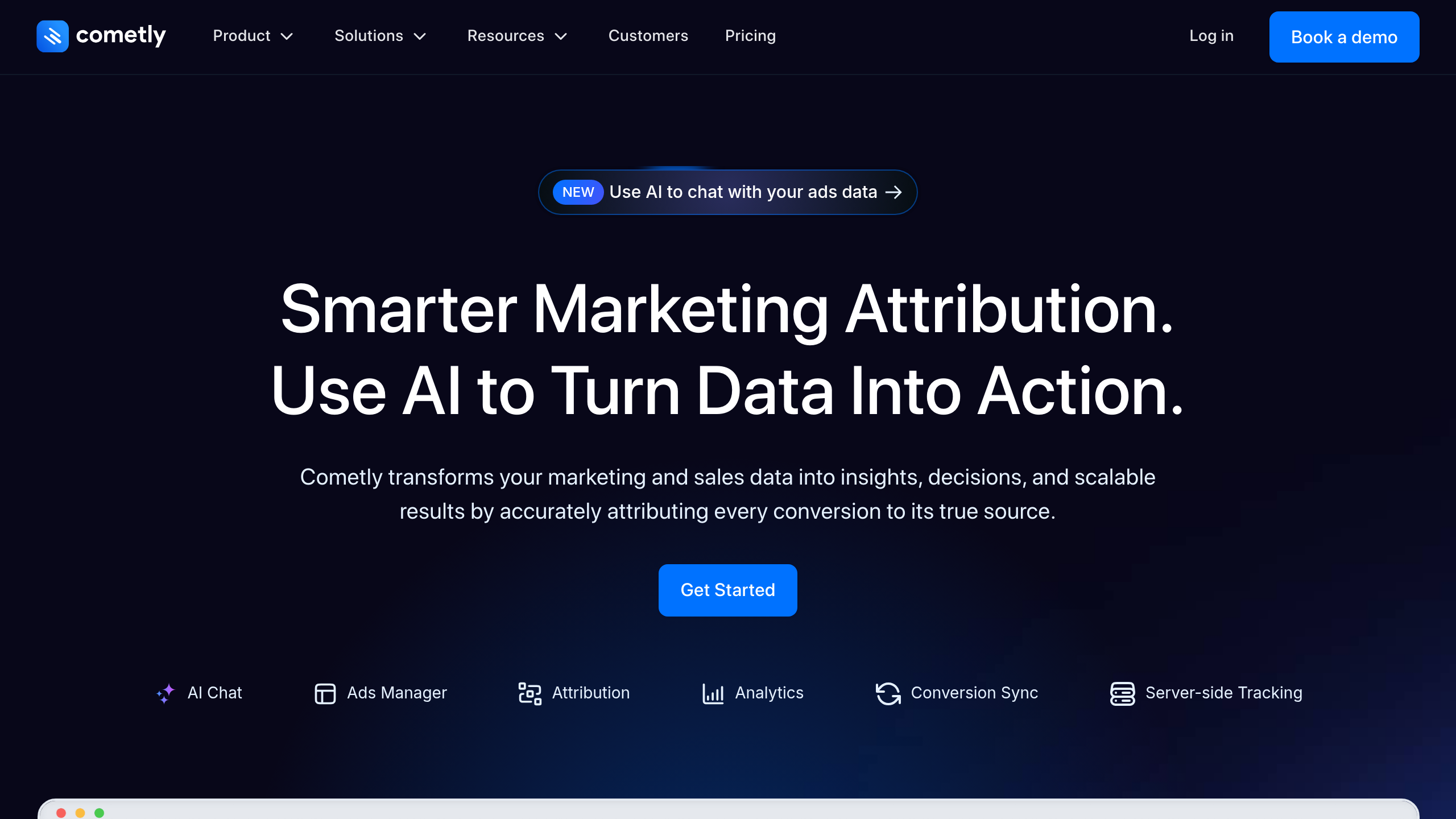
AI-driven Recommendations: Cometly leverages cutting-edge algorithms to deliver actionable insights that empower marketers to optimize their campaigns efficiently. This feature not only analyzes historical data but also predicts future trends, enabling users to make adjustments in real-time. For instance, if a campaign is underperforming, the software can recommend reallocating budget to higher-performing channels, maximizing the return on investment.
Multi-touch Attribution Model: One of the standout features of Cometly is its ability to implement a multi-touch attribution model. This model allows businesses to obtain precise insights by tracking all customer touchpoints along their journey before conversion. By capturing interactions across various channels—such as social media, email, and paid ads—marketers can understand which touchpoints contribute most to conversions. This comprehensive view is crucial for informed decision-making, as it highlights effective strategies while identifying areas needing improvement.
Robust Analytics Tools: Cometly is equipped with powerful analytics tools that provide detailed reporting on performance metrics. Marketers can easily access in-depth analysis of their campaigns, including conversion rates, customer engagement levels, and channel performance. For example, users can switch between different attribution models within the Cometly ads manager on the fly, allowing for quick comparisons of data. This flexibility enables marketers to experiment with various models, feeding the AI different attribution strategies to uncover deep insights that are often overlooked in traditional analysis.
Pros: Cometly excels in offering real-time data, which is pivotal for agile marketing strategies. The platform is designed for ease of use, making it accessible for both novice and experienced marketers. Additionally, Cometly provides comprehensive support to ensure that users can maximize the software’s potential without feeling overwhelmed.
Cons: However, it is important to note that Cometly's pricing may be higher compared to some competitors. This investment, though, often yields significant returns by providing advanced analytics capabilities that justify the cost for businesses serious about optimizing their marketing efforts.
Best for: Companies with extensive digital marketing strategies.
Attribution is a robust platform focusing on cross-channel attribution.
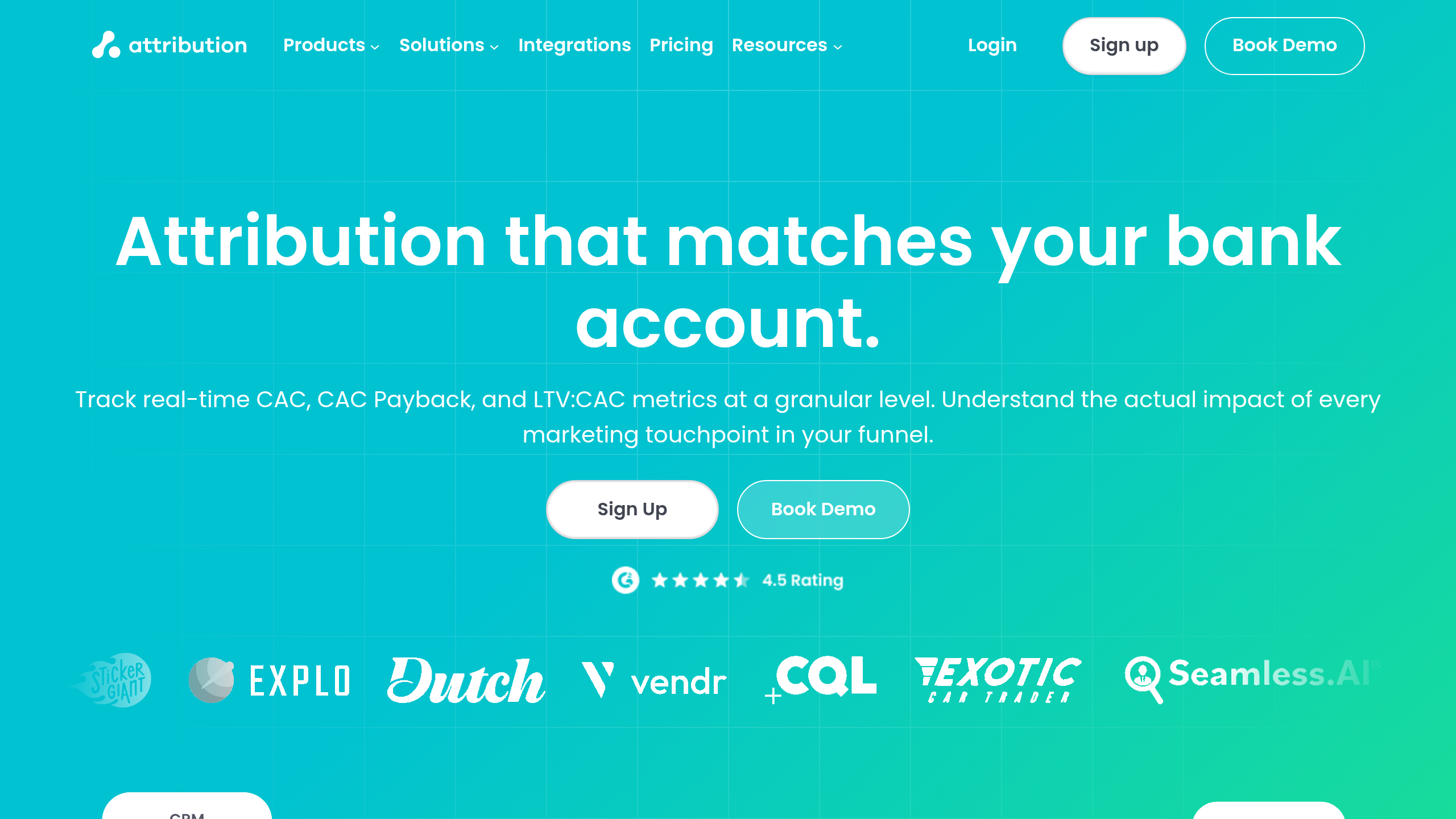
Seamless Integration: One of the standout features of Attribution is its ability to integrate seamlessly with various ad platforms, including Google Ads, Facebook Ads, and LinkedIn Ads. This integration allows marketers to track and analyze data from multiple channels in one centralized location, eliminating the need for cumbersome manual data entry or switching between different tools. By streamlining data tracking, businesses can gain a holistic view of their marketing performance, enabling them to make quicker, more informed decisions about their campaigns.
Comprehensive Reporting: Attribution's reporting capabilities are designed to provide marketers with detailed insights into their campaign performance. The platform generates comprehensive reports that highlight key metrics such as conversion rates, click-through rates, and return on ad spend. These insights empower marketers to refine their strategies effectively. For instance, if a particular ad campaign is underperforming, users can delve into the report to identify specific issues, such as targeting or creative elements, allowing for timely adjustments that can enhance overall performance.
User-Friendly Dashboard: The intuitive interface of Attribution makes it accessible even for those who may not be data-savvy. Users can easily navigate the dashboard to access critical insights without feeling overwhelmed. The design is focused on user experience, allowing marketers to quickly find what they need, whether it's a high-level overview of their campaigns or a deep dive into specific metrics. This ease of use is especially beneficial for small to medium-sized businesses that may not have dedicated analytics teams.
Pros: Attribution is known for its advanced analytics capabilities, providing users with deeper insights that can drive better marketing decisions. Additionally, the strong customer support offered by the platform ensures that users receive assistance whenever they encounter challenges, making it easier to maximize the software's potential.
Cons: However, new users might face a steep learning curve when first interacting with the platform's extensive features. This complexity may be intimidating for some, but with dedicated training resources and customer support, most users can quickly become proficient.
Best for: Small to medium-sized businesses looking for an all-in-one solution.
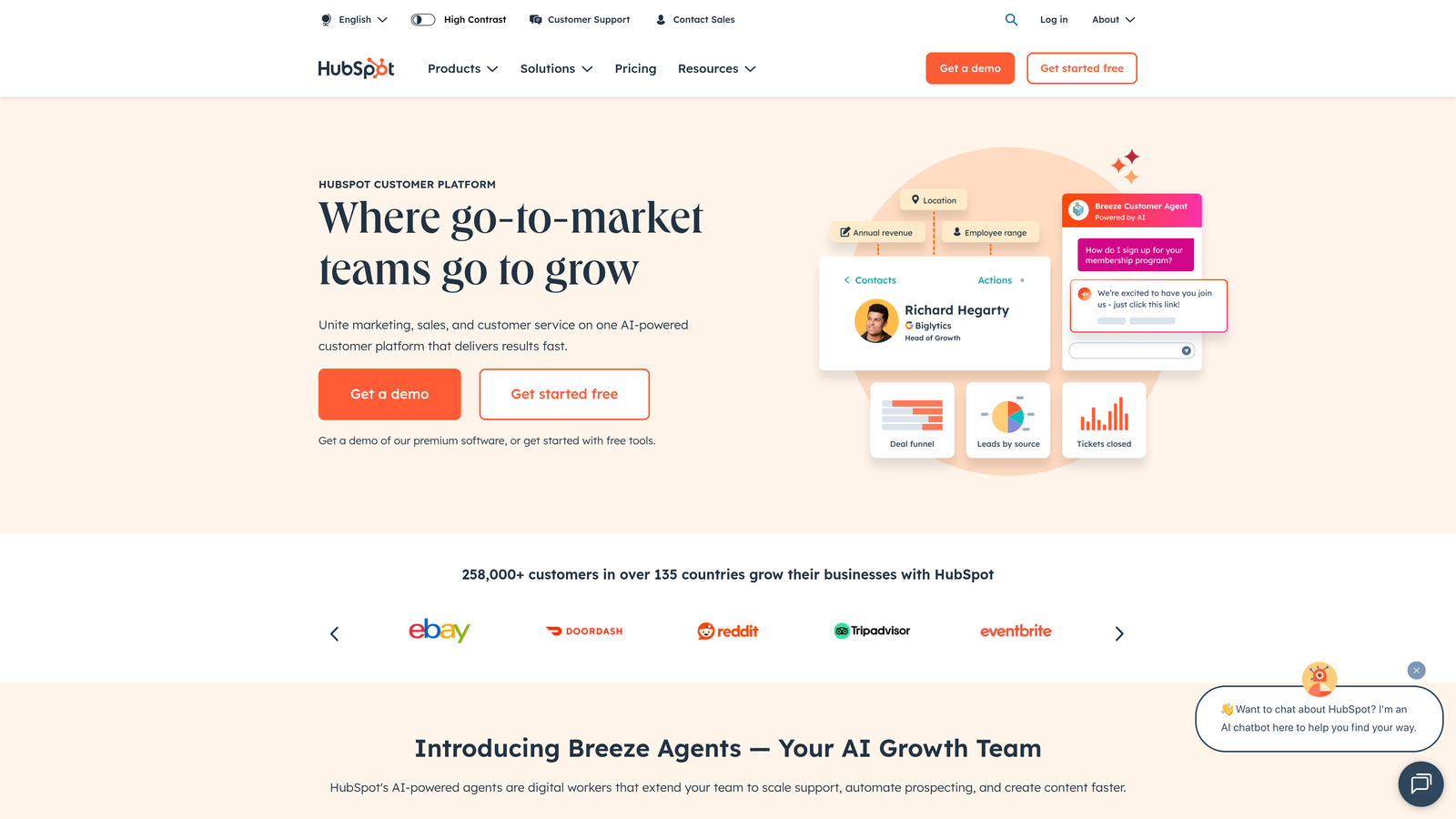
HubSpot offers an inbound marketing platform with built-in attribution analytics.
1. Marketing Automation Capabilities: HubSpot provides tools for automating marketing efforts, streamlining workflows, and enhancing productivity.
2. Integrated CRM: This feature allows businesses to manage customer relationships effectively alongside their marketing efforts.
3. Detailed Reporting: Marketers can analyze their performance metrics in-depth, enabling data-driven decision-making.
Pros: User-friendly interface, strong community support.
Cons: Limited advanced features for larger enterprises.
Best for: Businesses new to analytics looking for a free option.
Google Analytics is a staple in web analytics with some attribution capabilities.
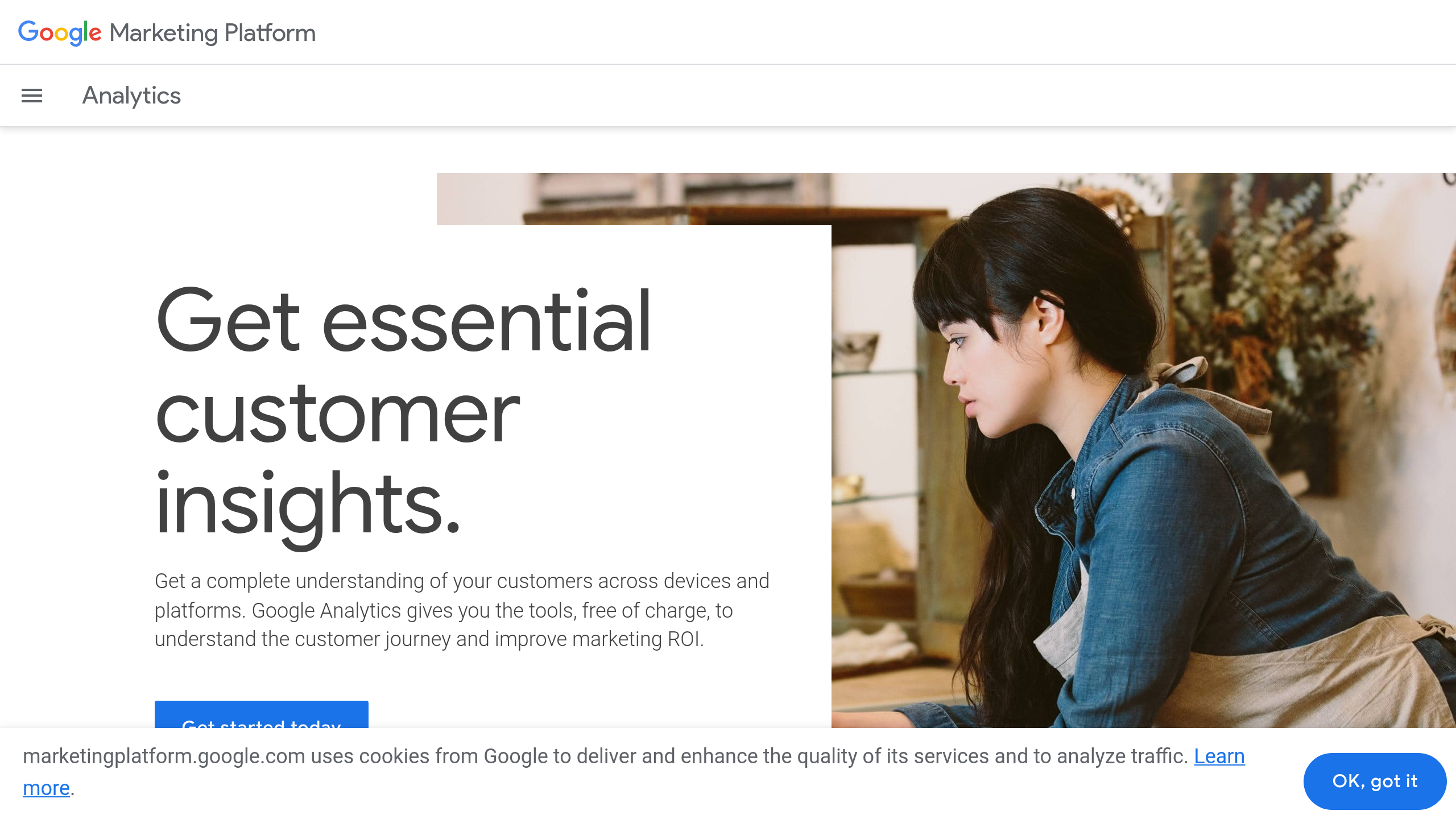
1. Cost-Effective: Google Analytics is free to use, making it accessible for businesses of all sizes.
2. Integration with Google Services: It integrates seamlessly with other Google products, providing enhanced insights.
3. Basic Attribution Models: While it offers foundational attribution models, businesses may find them insufficient for complex campaigns.
Pros: Wide acceptance and robust features.
Cons: Basic attribution models may not suffice for complex campaigns.
Best for: Tech-savvy businesses focusing on data-driven decisions.
Segment is a customer data platform that enhances attribution by connecting various data points.
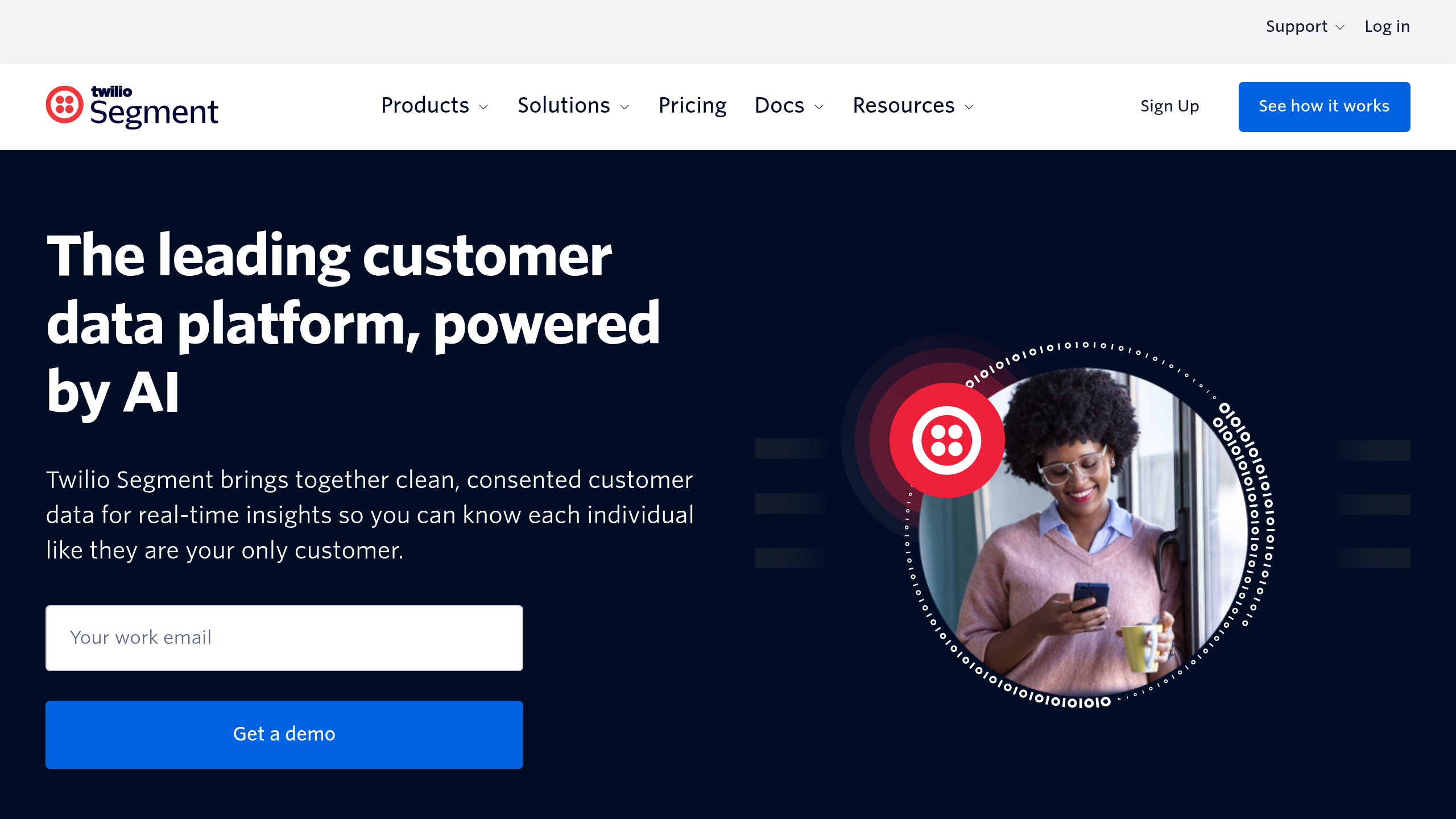
1. Powerful Data Collection: Segment excels in collecting data from multiple sources and organizing it for easy access.
2. Seamless Integrations: The platform connects with numerous marketing tools, providing a comprehensive view of customer interactions.
3. Real-Time Data Processing: Segment offers real-time tracking capabilities, ensuring accurate measurement of marketing efforts.
Pros: High-level customization, strong integration options.
Cons: Higher cost for smaller businesses.
Best for: Businesses looking for visual data representation.
Funnel helps businesses collect, analyze, and visualize their marketing data.
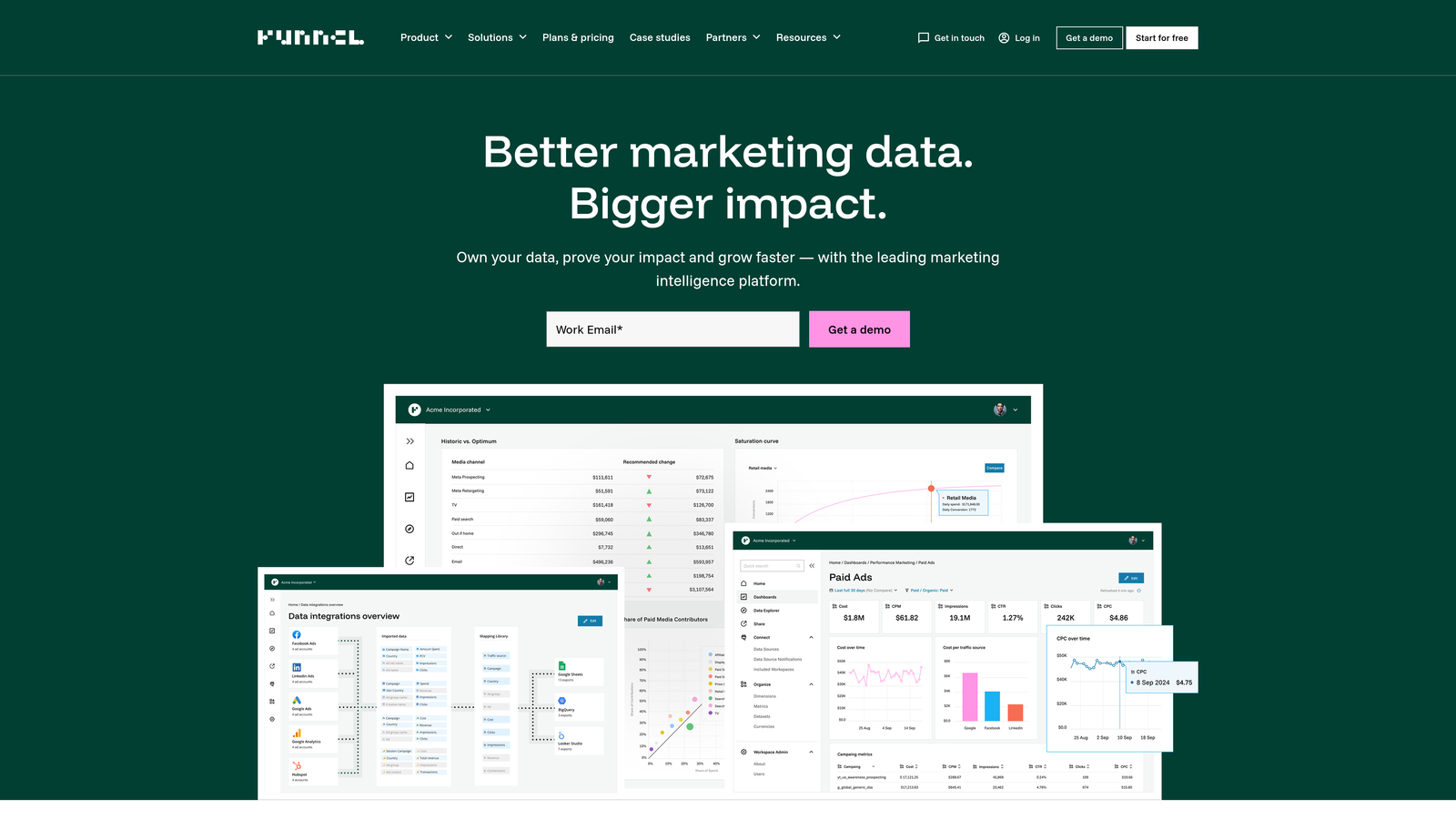
1. Visual Data Representation: Funnel’s dashboard provides easy-to-understand visual insights into marketing performance.
2. Data Collection Automation: Automates the collection of data from various platforms to save time and effort.
3. Integration with BI Tools: Funnel can integrate with business intelligence tools, enhancing reporting capabilities.
Pros: User-friendly interface, quick setup.
Cons: Limited support for less common platforms.
Best for: Mobile app marketers tracking performance.
Adjust specializes in mobile attribution and analytics for app marketers.
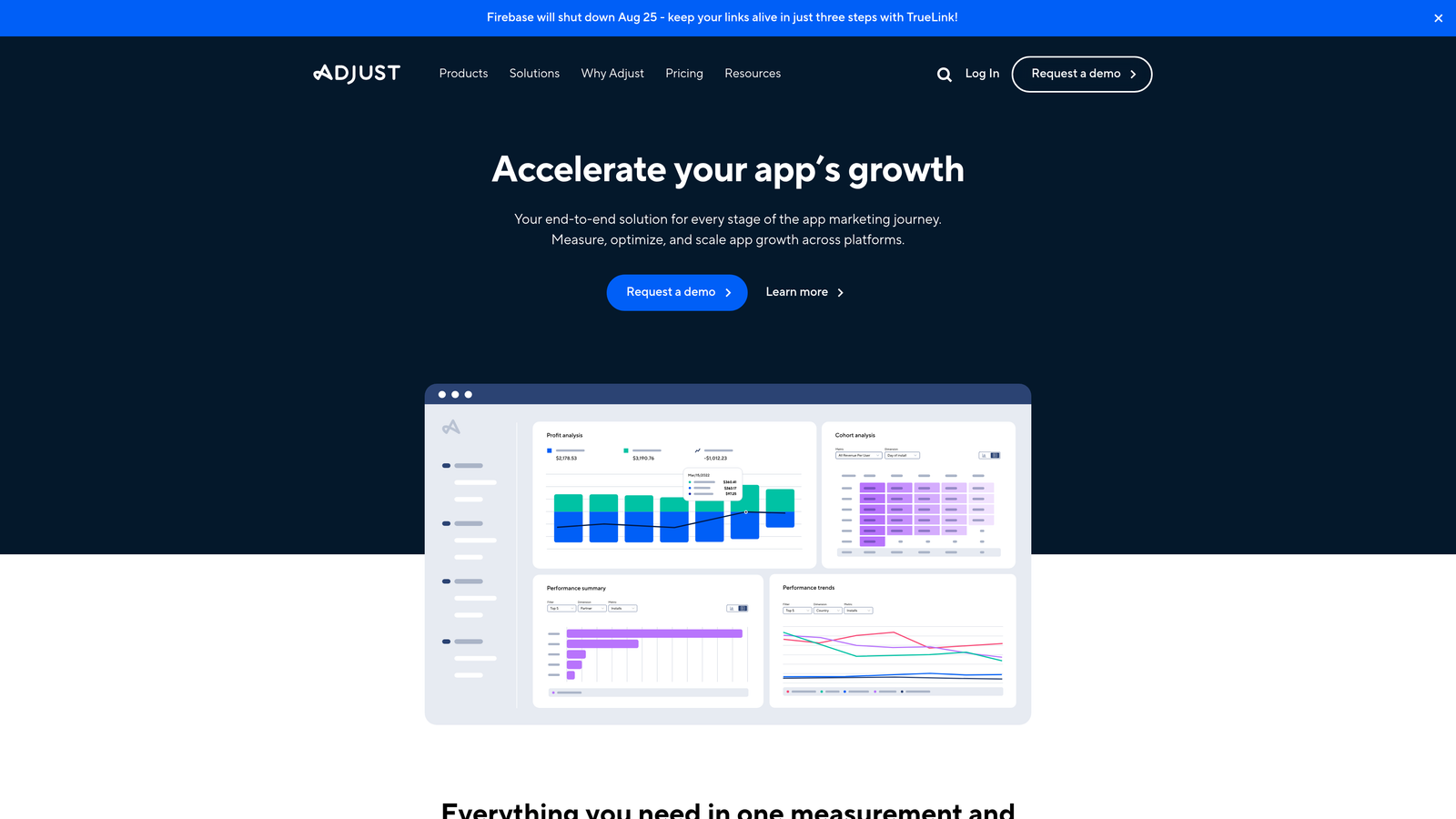
1. Mobile-Specific Attribution: Offers tools tailored for tracking mobile app performance across various channels.
2. Fraud Prevention: Includes fraud prevention features to ensure data accuracy and integrity.
3. Retention Tracking: Helps businesses understand user retention rates and optimize app engagement.
Pros: Focused on mobile, extensive features.
Cons: Primarily for mobile apps, less relevant for other businesses.
Hyros is an advanced marketing attribution software designed specifically for businesses that need deep insights into their customer journeys. It leverages sophisticated tracking technology to provide marketers with a comprehensive understanding of how their campaigns perform across various channels.
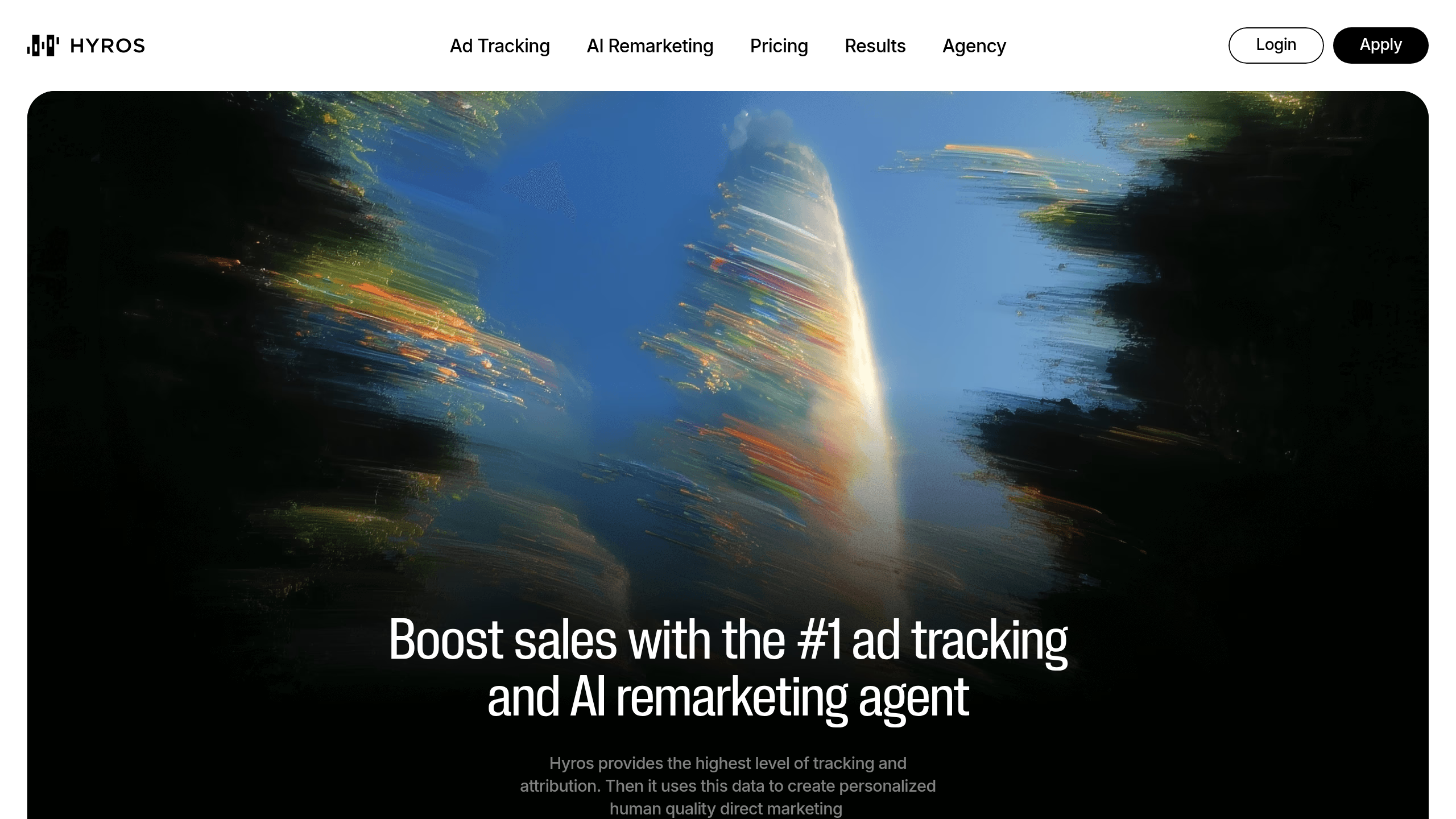
Pros: One of the standout features of Hyros is its ability to track user behavior in a highly detailed manner. This allows businesses to see not just which ads are driving conversions, but also how individual interactions influence customer decisions. With its robust tracking capabilities, companies can identify specific touchpoints that lead to sales, enabling them to optimize their marketing strategies effectively. For example, Hyros can differentiate between users who convert after seeing multiple ads versus those who convert after a single interaction, providing invaluable insights into the customer journey.
Another significant advantage of Hyros is its integration with various advertising platforms, including Facebook Ads and Google Ads. This seamless integration allows for real-time data analysis and campaign optimization, ensuring that marketing efforts are continuously aligned with performance metrics. Moreover, Hyros's user-friendly dashboard simplifies the process of accessing key performance indicators, making it accessible even for marketers who may not be technically inclined.
In summary, while Hyros presents powerful tools for tracking and optimizing marketing campaigns, businesses should weigh the costs and the learning curve against their specific needs and resources to determine if it’s the right fit for their marketing strategy.
Best for: E-commerce companies tracking user behavior.
Kissmetrics focuses on user behavior analytics for e-commerce businesses.
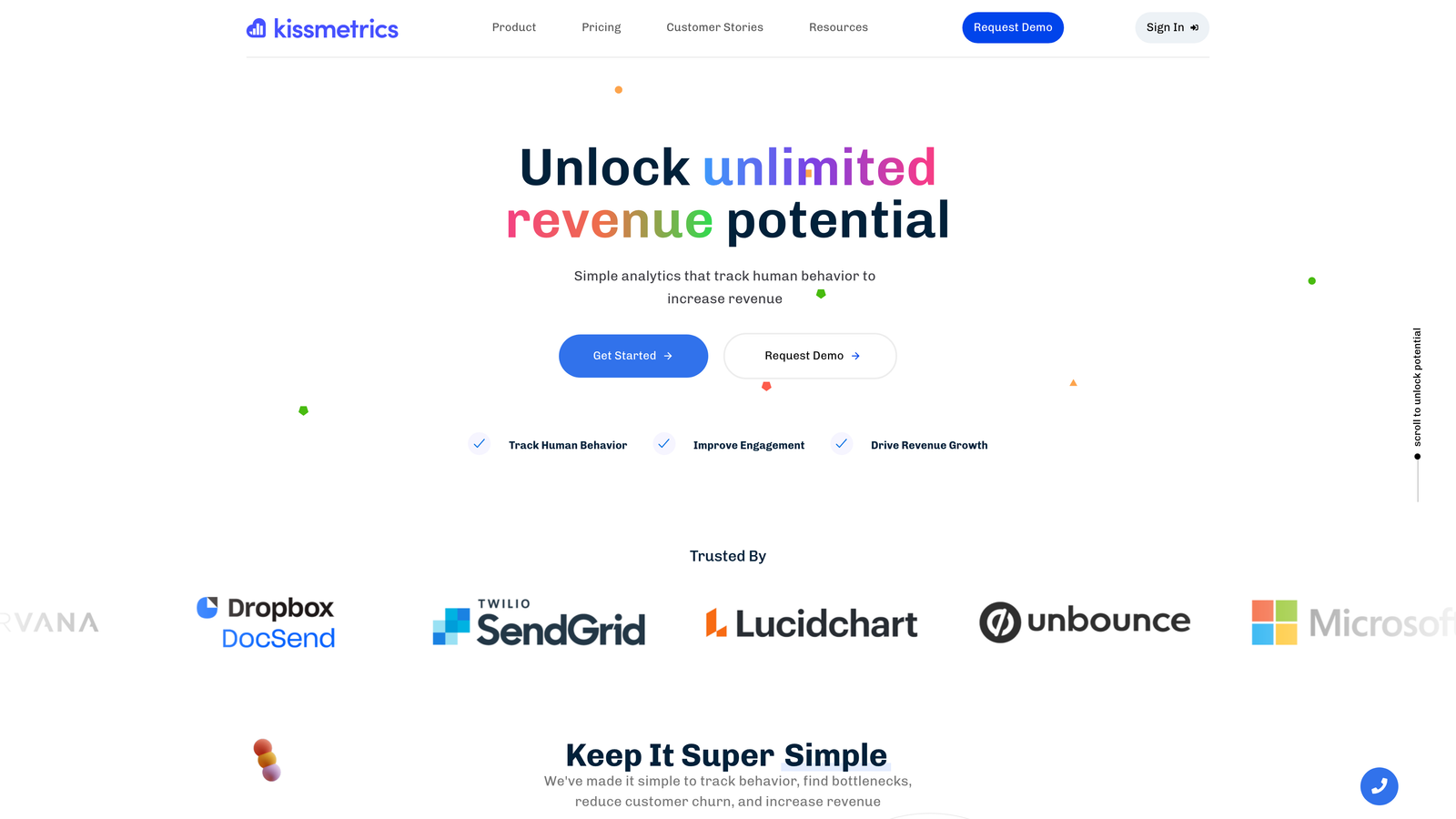
1. Customer-Centric Approach: Kissmetrics emphasizes individual customer behavior to provide insights that drive sales.
2. A/B Testing Capabilities: This tool helps businesses experiment and optimize their marketing strategies effectively.
3. Detailed Reporting: Offers comprehensive reports on user segments and their purchasing journeys.
Pros: Strong focus on conversions, excellent reporting capabilities.
Cons: More suited to e-commerce; others may find fewer applicable features.
Best for: Large enterprises seeking advanced analytics capabilities.
Adobe Analytics provides an advanced analytics solution for enterprises.
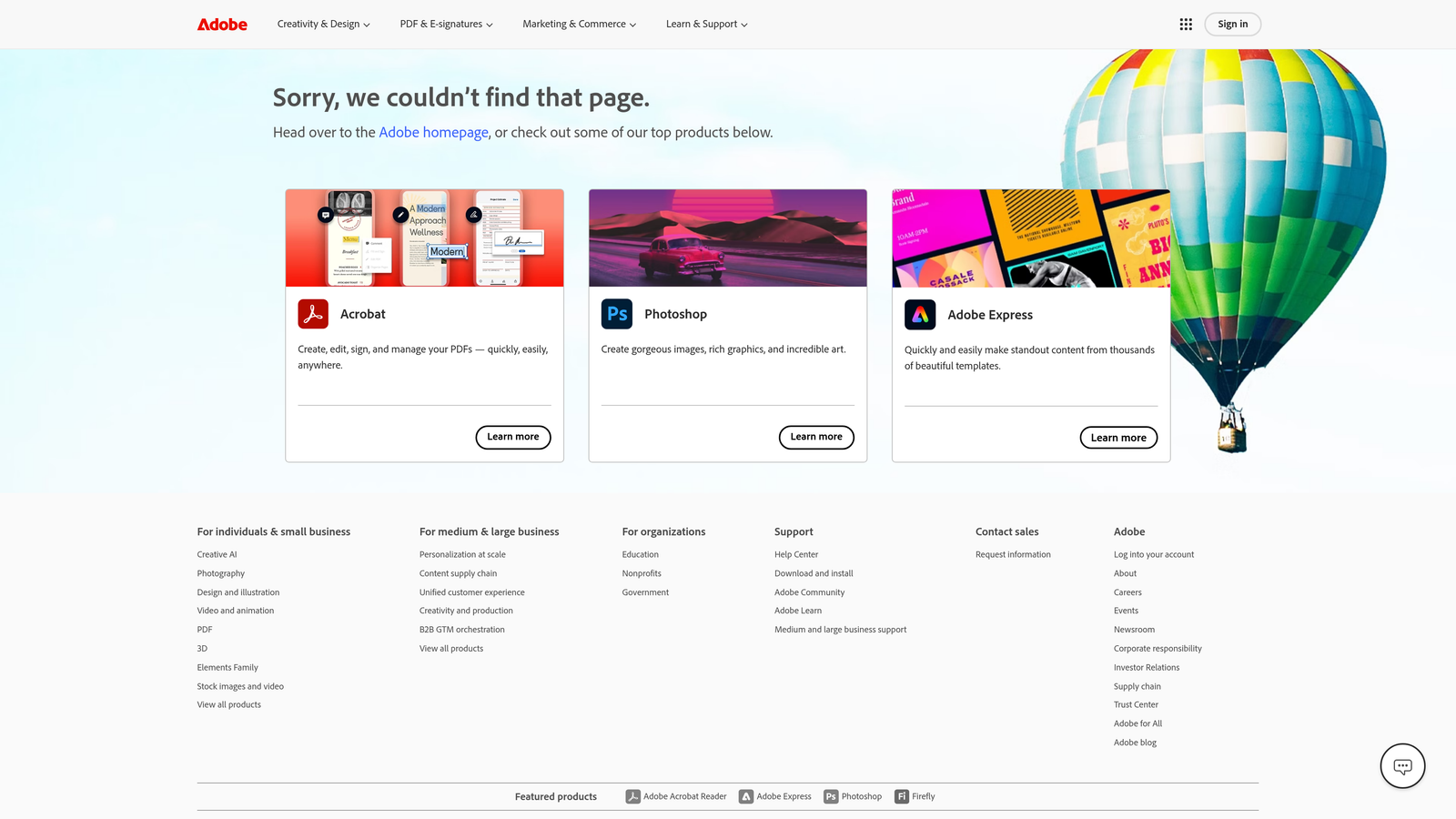
1. Comprehensive Data Analysis: Offers deep insights into customer interactions across various touchpoints.
2. Customizable Dashboards: Users can create personalized dashboards tailored to their specific business needs.
3. Predictive Analytics Features: Leverages AI to forecast customer behavior and trends.
Pros: Extensive features, powerful capabilities.
Cons: High complexity; may require training for effective use.
As we’ve explored, choosing the right marketing attribution software can be pivotal for your business's success. Each tool on this list brings unique strengths to the table, from Cometly's real-time optimization to HubSpot’s all-in-one solution. By investing in the right software, you can enhance your understanding of customer interactions, improve decision-making, and ultimately increase your ROI.
With the right attribution software, you can expect to see improved effectiveness in your marketing strategies, leading to better resource allocation and higher returns. Don’t forget to explore the features of Cometly for your marketing needs. Ready to supercharge your marketing strategy with real-time insights? Don’t miss out—Get Started Now to experience Cometly's AI-driven recommendations and multi-touch attribution that ensure you never miss a conversion touchpoint.
For further reading, check out our insights on marketing attribution reports and how to leverage SaaS marketing metrics for your business.
Learn how Cometly can help you pinpoint channels driving revenue.
.svg)
Network with the top performance marketers in the industry